The MLB World Series, the pinnacle of baseball, is a captivating spectacle that has captivated fans for over a century. It’s more than just a game; it’s a cultural phenomenon, a testament to the sport’s enduring popularity, and a showcase for the best players in the world.
From its humble beginnings to its modern-day grandeur, the World Series has evolved, adapting to changing times while retaining its core essence. The format, rules, and even the players have changed, but the excitement and passion remain the same.
The Impact of the World Series on MLB
The World Series, the pinnacle of Major League Baseball, stands as the ultimate championship, culminating a season of intense competition and captivating storylines. Beyond its role as a thrilling conclusion, the World Series exerts a profound influence on the MLB season, shaping player performance, team strategies, and the very fabric of the sport.
The World Series’ Influence on Player Performance and Team Strategies
The World Series serves as the ultimate stage for players to showcase their skills and cement their legacies. The intense pressure and spotlight of the Fall Classic can bring out the best in players, inspiring them to elevate their performance to new heights. For teams, the World Series represents the culmination of their season-long efforts, demanding meticulous preparation and strategic adjustments.
- Increased Intensity and Focus: The World Series brings an unparalleled level of intensity to the game, pushing players to their limits and forcing teams to adapt their strategies. The heightened pressure can lead to exceptional performances, as players strive to make their mark on the biggest stage.
- Strategic Adjustments: Teams often employ different strategies in the World Series, adjusting their pitching rotations, lineup order, and defensive alignments to exploit their opponents’ weaknesses. The pressure of the championship can lead to creative and innovative approaches, as teams seek any edge they can find.
- Individual Recognition: The World Series provides a platform for players to gain individual recognition and accolades. Players who excel in the Fall Classic often receive prestigious awards, such as the World Series MVP, and solidify their place in baseball history.
The Economic and Cultural Significance of the World Series
The World Series is not only a sporting event but also a cultural phenomenon that generates significant economic and cultural impact. Its captivating storylines, intense competition, and widespread media coverage make it a global event, drawing millions of viewers and generating substantial revenue for the MLB.
- Fan Engagement: The World Series is a time of heightened fan engagement, with fans across the country glued to their televisions and radios to witness the culmination of the season. The excitement and passion surrounding the Fall Classic contribute to a surge in merchandise sales, ticket demand, and overall fan interest in the sport.
- Media Coverage: The World Series receives extensive media coverage, from television broadcasts and newspaper articles to social media discussions and online forums. The media attention surrounding the event amplifies the sport’s popularity and reaches a wider audience, contributing to the growth of the MLB.
- Revenue Generation: The World Series is a significant revenue generator for the MLB, with ticket sales, television rights fees, and merchandise sales contributing to the league’s overall financial success. The event’s global reach and widespread popularity make it a lucrative opportunity for the league and its teams.
The Historical and Cultural Context of the World Series
The World Series has a rich history dating back to 1903, evolving over the years to become a cornerstone of American sports culture. Its evolution reflects the changing landscape of baseball and society, while its enduring popularity speaks to its enduring appeal.
- Early Years: The early World Series featured a mix of professional and amateur teams, with the first championship contested between the Boston Americans (now the Red Sox) and the Pittsburgh Pirates. The event’s early years were marked by a growing interest in the sport, as the World Series began to capture the imagination of the American public.
- Expansion and Growth: The MLB expanded throughout the 20th century, adding new teams and territories to the league. The World Series also grew in popularity, becoming a national event with widespread media coverage and fan enthusiasm.
- Cultural Impact: The World Series has become a cultural icon, with its traditions, rivalries, and memorable moments deeply ingrained in American culture. The event has inspired countless books, films, and songs, and its impact extends beyond the realm of sports.
Notable World Series Moments and Players
The World Series is a culmination of a long and arduous season, showcasing the best teams and players in Major League Baseball. Throughout its history, the World Series has witnessed countless unforgettable moments, iconic players, and dramatic storylines. These moments and players have cemented the World Series as a cultural touchstone, capturing the hearts and minds of fans across generations.
Memorable World Series Moments
The World Series is a tapestry woven with moments of brilliance, heartbreak, and sheer drama. Here are ten of the most memorable moments that have etched themselves into baseball history:
| Moment | Game | Teams | Description |
|---|---|---|---|
| Kirk Gibson’s Walk-Off Home Run | Game 1, 1988 World Series | Los Angeles Dodgers vs. Oakland Athletics | In a game that was tied 4-4 in the bottom of the 9th inning, Kirk Gibson, who was battling a severe hamstring injury, pinch-hit for the Dodgers and hit a dramatic two-run home run off Dennis Eckersley, one of the best closers in baseball. This iconic moment is often considered one of the greatest home runs in World Series history. |
| Bill Mazeroski’s Walk-Off Home Run | Game 7, 1960 World Series | Pittsburgh Pirates vs. New York Yankees | The New York Yankees were heavily favored to win the 1960 World Series, but in a thrilling Game 7, the Pittsburgh Pirates were able to force extra innings. In the bottom of the 9th, Bill Mazeroski hit a walk-off home run off Ralph Terry, securing the World Series championship for the Pirates. This moment remains one of the most dramatic in World Series history. |
| The “Impossible Dream” of the 1967 Boston Red Sox | Game 7, 1967 World Series | Boston Red Sox vs. St. Louis Cardinals | The Boston Red Sox were a mediocre team for much of the 1967 season, but they managed to win the American League pennant. In the World Series, they faced the heavily favored St. Louis Cardinals. After losing the first two games in St. Louis, the Red Sox rallied to win four of the next five games. In Game 7, the Red Sox won in extra innings, completing an improbable comeback and securing the World Series title. |
| Carlton Fisk’s “The Catch” | Game 6, 1975 World Series | Boston Red Sox vs. Cincinnati Reds | With the Red Sox trailing the Cincinnati Reds by a run in the bottom of the 12th inning of Game 6, Carlton Fisk hit a towering fly ball to deep left field. The ball appeared to be headed out of the ballpark, but Cincinnati’s left fielder, Pete Rose, leaped and reached high to try to catch it. Rose could not quite get to the ball, and Fisk, who was watching the play unfold from first base, dramatically signaled the ball to stay fair. The ball landed just inside the foul pole, tying the game. The Red Sox went on to win the game in the bottom of the 12th, but ultimately lost the World Series in Game 7. |
| The “Buckner Error” | Game 6, 1986 World Series | New York Mets vs. Boston Red Sox | The New York Mets were trailing the Boston Red Sox by a run in the bottom of the 10th inning of Game 6. With two outs and a runner on first, the Mets’ Mookie Wilson hit a ground ball to first base. Red Sox first baseman Bill Buckner fumbled the ball, allowing the tying run to score. The Mets went on to win the game in the bottom of the 10th, and ultimately won the World Series in Game 7. |
| The “Blackout” of 1994 | No Game | N/A | Due to a labor dispute between the MLB players and owners, the 1994 World Series was canceled. This was a devastating blow to the sport, and it had a lasting impact on the game. |
| The “Curse of the Bambino” | N/A | Boston Red Sox | After trading Babe Ruth to the New York Yankees in 1918, the Boston Red Sox were unable to win a World Series for 86 years. This drought, which became known as the “Curse of the Bambino,” became a part of baseball lore. The Red Sox finally broke the curse in 2004, winning the World Series in a dramatic four-game comeback against the Yankees. |
| The “Rally Monkey” | Game 3, 2002 World Series | Anaheim Angels vs. San Francisco Giants | During the 2002 World Series, the Anaheim Angels used a small monkey in a commercial break to rally their fans. The “Rally Monkey” became a symbol of the Angels’ improbable run to the World Series title. |
| The “Longest World Series Game” | Game 3, 2005 World Series | Chicago White Sox vs. Houston Astros | Game 3 of the 2005 World Series between the Chicago White Sox and the Houston Astros was the longest game in World Series history, lasting 14 innings. The game ended with a White Sox victory, but the game itself was a testament to the intensity and drama of the World Series. |
| The “Perfect Game” in the World Series | Game 5, 2010 World Series | San Francisco Giants vs. Texas Rangers | In Game 5 of the 2010 World Series, San Francisco Giants pitcher, Tim Lincecum, pitched a perfect game, the first in World Series history. Lincecum struck out 10 batters and allowed no hits or walks, leading the Giants to a 1-0 victory. |
Top 5 Players with the Greatest Impact on the World Series
The World Series has been graced by countless legends who have left their mark on the game. These players have consistently delivered at the highest level, showcasing their talent and determination on the biggest stage. Here are five of the most impactful players in World Series history:
- Babe Ruth (New York Yankees): The “Sultan of Swat” was a dominant force in the early days of the World Series. In seven World Series appearances, Ruth hit 15 home runs, 22 RBIs, and a .625 slugging percentage. He was instrumental in the Yankees’ dominance during the 1920s, leading them to four World Series titles.
- Jackie Robinson (Brooklyn Dodgers): Breaking the color barrier in Major League Baseball, Robinson was a key player in the Dodgers’ rise to prominence in the 1940s and 1950s. In six World Series appearances, Robinson batted .342 with 10 RBIs. His impact on the sport extended far beyond the field, paving the way for future generations of African American players.
- Sandy Koufax (Los Angeles Dodgers): Koufax was one of the most dominant pitchers in baseball history, and he shone brightly in the World Series. In four World Series appearances, Koufax won seven games and had a 0.95 ERA. His performances in the 1963 and 1965 World Series, where he pitched three complete games, are considered among the most dominant pitching displays in World Series history.
- Yogi Berra (New York Yankees): Berra was a legendary catcher for the New York Yankees, known for his clutch hitting and his quirky personality. In 14 World Series appearances, Berra won 10 championships and was named World Series MVP in 1956. His impact on the Yankees dynasty of the 1950s and 1960s cannot be overstated.
- Mickey Mantle (New York Yankees): Mantle was a powerful and versatile player who was a key figure in the Yankees’ dominance in the 1950s and 1960s. In 12 World Series appearances, Mantle hit 18 home runs and had 40 RBIs. He was named World Series MVP in 1956 and 1964.
Historical Significance of the World Series
The World Series has evolved over the years, reflecting the changing landscape of Major League Baseball. Here is a timeline highlighting key moments, teams, and players across different decades:
| Decade | Key Moments and Teams | Notable Players |
|---|---|---|
| 1910s | The World Series was first played in 1903. The Boston Americans (later the Red Sox) won the first championship. The “Dead Ball Era” was characterized by low-scoring games and strategic defense. | Ty Cobb (Detroit Tigers), Walter Johnson (Washington Senators), Christy Mathewson (New York Giants) |
| 1920s | The “Live Ball Era” began, characterized by more offensive production and home runs. The New York Yankees emerged as a dominant force, led by Babe Ruth. | Babe Ruth (New York Yankees), Lou Gehrig (New York Yankees), Honus Wagner (Pittsburgh Pirates) |
| 1930s | The Great Depression had a significant impact on baseball, but the Yankees continued their dominance. The St. Louis Cardinals emerged as a major rival. | Joe DiMaggio (New York Yankees), Dizzy Dean (St. Louis Cardinals), Jimmie Foxx (Philadelphia Athletics) |
| 1940s | World War II had a significant impact on baseball, with many players serving in the military. Jackie Robinson broke the color barrier in Major League Baseball. | Jackie Robinson (Brooklyn Dodgers), Ted Williams (Boston Red Sox), Stan Musial (St. Louis Cardinals) |
| 1950s | The Yankees continued their dynasty, winning five World Series titles in the decade. The Brooklyn Dodgers emerged as a strong contender. | Yogi Berra (New York Yankees), Mickey Mantle (New York Yankees), Roy Campanella (Brooklyn Dodgers) |
| 1960s | The expansion of Major League Baseball began, with new teams added in both leagues. The Boston Red Sox won their first World Series title since 1918. | Willie Mays (San Francisco Giants), Roberto Clemente (Pittsburgh Pirates), Sandy Koufax (Los Angeles Dodgers) |
| 1970s | The “Big Red Machine” of the Cincinnati Reds dominated the decade, winning three World Series titles. The Oakland Athletics, led by manager Billy Martin, emerged as a powerhouse. | Pete Rose (Cincinnati Reds), Johnny Bench (Cincinnati Reds), Joe Morgan (Cincinnati Reds) |
| 1980s | The New York Mets and the Boston Red Sox were among the most successful teams of the decade. The World Series witnessed some of the most dramatic moments in its history. | Mike Schmidt (Philadelphia Phillies), Rickey Henderson (Oakland Athletics), Cal Ripken Jr. (Baltimore Orioles) |
| 1990s | The Atlanta Braves emerged as a dominant force in the National League, winning the World Series in 1995. The New York Yankees won four World Series titles in the decade. | Tom Glavine (Atlanta Braves), Greg Maddux (Atlanta Braves), Mariano Rivera (New York Yankees) |
| 2000s | The World Series witnessed the rise of the Anaheim Angels, the Florida Marlins, and the Boston Red Sox. The New York Yankees continued their success, winning the World Series in 2000 and 2009. | Derek Jeter (New York Yankees), Ichiro Suzuki (Seattle Mariners), Albert Pujols (St. Louis Cardinals) |
| 2010s | The World Series saw the rise of the San Francisco Giants, who won three titles in the decade. The Chicago Cubs ended their 108-year championship drought in 2016. | Buster Posey (San Francisco Giants), Madison Bumgarner (San Francisco Giants), Kris Bryant (Chicago Cubs) |
The World Series in Modern Times
The 21st century has witnessed a significant evolution in the World Series, shaped by globalization, free agency, and the rise of new technologies. These factors have transformed the landscape of the sport, impacting the way teams are built, players are acquired, and fans engage with the event.
The Impact of Globalization and Free Agency
The globalization of baseball has had a profound impact on the World Series. Players from all over the world, including countries like Japan, South Korea, and the Dominican Republic, have become integral parts of Major League Baseball (MLB) teams. This influx of international talent has added diversity and skill to the game, making the World Series more competitive and unpredictable.
Free agency has also played a crucial role in shaping the modern World Series. Teams can now assemble star-studded rosters by signing top players from other teams, leading to a more balanced competition and a greater emphasis on financial resources.
The Influence of Social Media and Digital Platforms
Social media and digital platforms have revolutionized fan engagement with the World Series. Fans can now follow the action live on their phones, interact with players and teams on social media, and participate in online discussions and debates. These platforms have also created new opportunities for MLB to promote the World Series and reach a wider audience.
The World Series has become a global spectacle, with fans around the world tuning in to watch the best teams in baseball compete for the championship.
The Future of the World Series, Mlb world series
The World Series is constantly evolving, and it’s likely that future iterations of the event will see changes to the format, rules, and overall experience.
* Format Changes: There is ongoing debate about the potential for expanding the World Series format, such as implementing a best-of-seven series for the American League Championship Series (ALCS) and the National League Championship Series (NLCS).
* Rule Changes: MLB is constantly experimenting with rule changes to enhance the pace of play and create more excitement for fans. These changes could potentially impact the World Series, leading to a more dynamic and unpredictable event.
* Fan Engagement: The use of technology will likely play an even greater role in fan engagement in the future. Augmented reality (AR) and virtual reality (VR) could be used to provide fans with immersive experiences, while interactive platforms could allow fans to participate in the game in new ways.
The future of the World Series is bright, with the potential for exciting innovations and increased fan engagement. The event will continue to evolve and adapt to the changing landscape of baseball, ensuring its continued relevance and popularity for generations to come.
Juan Soto and the World Series
Juan Soto, a prodigious talent in the world of baseball, has emerged as one of the most captivating figures in the sport. His journey from a young prodigy to a World Series participant has been marked by exceptional skill and unwavering determination. This exploration delves into Juan Soto’s career trajectory, highlighting his key accomplishments and contributions to the MLB, and analyzes his impact on the World Series, including his participation, performance, and significance to his respective teams. By comparing and contrasting Soto’s World Series experiences with those of other notable players, we gain a deeper understanding of his individual journey and contributions to the grand stage of baseball.
Juan Soto’s Career Trajectory
Juan Soto’s baseball career began at a young age, showcasing his prodigious talent from the outset. He made his Major League Baseball debut in 2018 with the Washington Nationals, quickly establishing himself as a force to be reckoned with. His remarkable batting skills, coupled with his exceptional plate discipline and ability to hit for power, garnered widespread recognition and acclaim.
- Soto’s breakout season in 2019 cemented his status as one of the game’s brightest stars. He led the National League in on-base percentage and slugging percentage, earning himself a spot in the All-Star Game and capturing the Silver Slugger Award.
- In 2020, Soto further solidified his reputation as a formidable hitter, leading the National League in batting average and earning another All-Star selection.
- Soto’s ability to consistently produce at a high level has made him a valuable asset to any team, and his contributions to the Nationals culminated in a World Series championship in 2019. He played a pivotal role in the Nationals’ victory, showcasing his exceptional hitting prowess throughout the playoffs.
Juan Soto’s World Series Performances
Juan Soto’s participation in the 2019 World Series was a testament to his exceptional talent and unwavering determination. He showcased his remarkable batting skills throughout the series, displaying his ability to hit for power and average. His contributions played a significant role in the Nationals’ victory, solidifying his place as a rising star in the world of baseball.
- In Game 1 of the 2019 World Series, Soto hit a home run against the Houston Astros, demonstrating his ability to perform on the biggest stage.
- Soto’s consistent performance throughout the series showcased his ability to handle pressure and perform at a high level in high-stakes situations.
- Soto’s performance in the World Series was a microcosm of his career trajectory, demonstrating his ability to perform at a high level on the biggest stage.
Comparison of Soto’s World Series Experiences with Other Players
Juan Soto’s World Series experiences can be compared and contrasted with those of other notable players, providing insights into the individual journeys and contributions of these exceptional athletes.
- Comparing Soto’s performance in the 2019 World Series with that of players like Albert Pujols, who won the World Series MVP award in 2011, reveals the different ways in which players can contribute to their team’s success. While Pujols was a veteran player with a proven track record of success, Soto was a young, emerging star, demonstrating his potential on the grand stage.
- Contrasting Soto’s World Series experience with that of players like Mike Trout, who has yet to win a World Series, highlights the different challenges and opportunities that players face in their pursuit of baseball’s ultimate prize. While Trout has consistently been one of the best players in the league, he has yet to achieve the ultimate success of winning a World Series, demonstrating the unpredictable nature of the game.
End of Discussion
The MLB World Series is a testament to the power of sports to unite people, transcend generations, and create lasting memories. It’s a celebration of athletic excellence, strategic brilliance, and the unwavering spirit of competition. As we look to the future, the World Series continues to evolve, promising more exciting moments and unforgettable stories for generations to come.
Quick FAQs: Mlb World Series
How many teams make the playoffs for the World Series?
Currently, 10 teams make the playoffs: the top three teams from each league and the top two wild card teams.
What is the significance of the Commissioner’s Trophy?
The Commissioner’s Trophy is awarded to the World Series champion. It’s a symbol of ultimate victory in Major League Baseball.
Who holds the record for the most World Series titles?
The New York Yankees hold the record with 27 World Series titles.
The MLB World Series is a captivating event that draws fans from across the globe. For those seeking accommodations near the excitement, Nashville offers a variety of options, including hotels near Brooklyn Bowl Nashville hotels near brooklyn bowl nashville , a popular entertainment venue.
These hotels provide convenient access to the city’s vibrant nightlife and entertainment scene, allowing fans to immerse themselves in the atmosphere surrounding the World Series.
The MLB World Series is a captivating event that draws fans from across the globe, and Boston is a city that often finds itself at the heart of the action. For those seeking accommodation during this exciting time, a variety of options are available, including hotels near Big Night Live Boston , a popular entertainment complex.
The proximity of these hotels provides convenient access to the lively atmosphere and various events that contribute to the overall experience of the World Series.

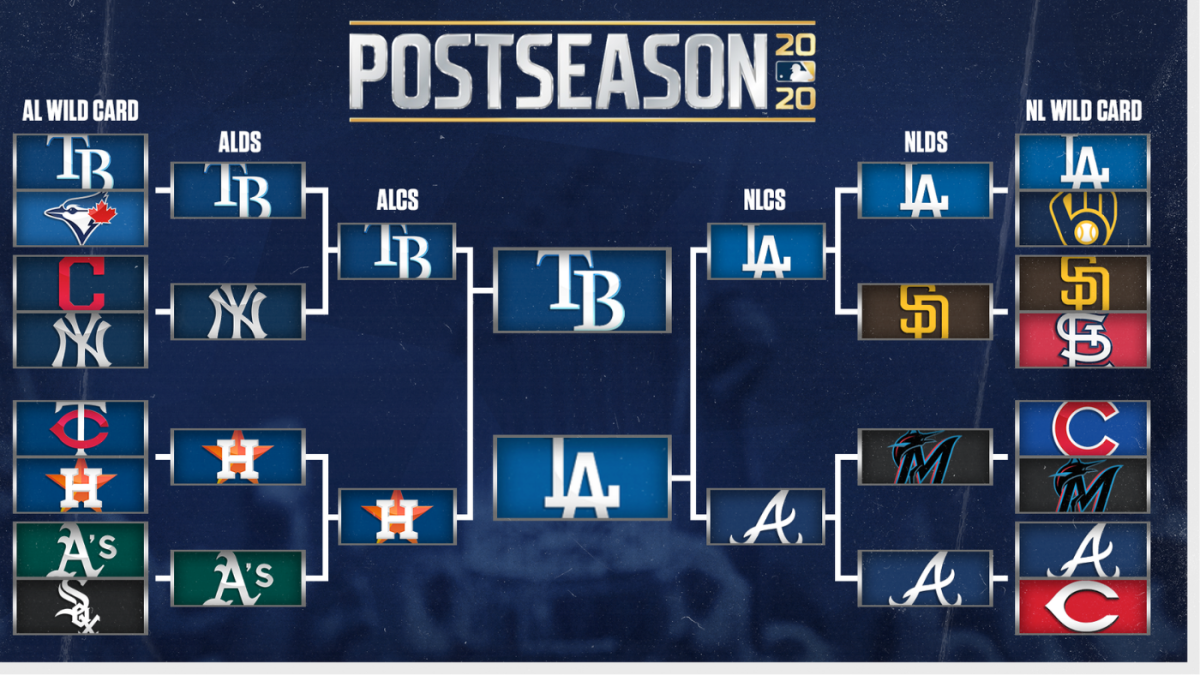
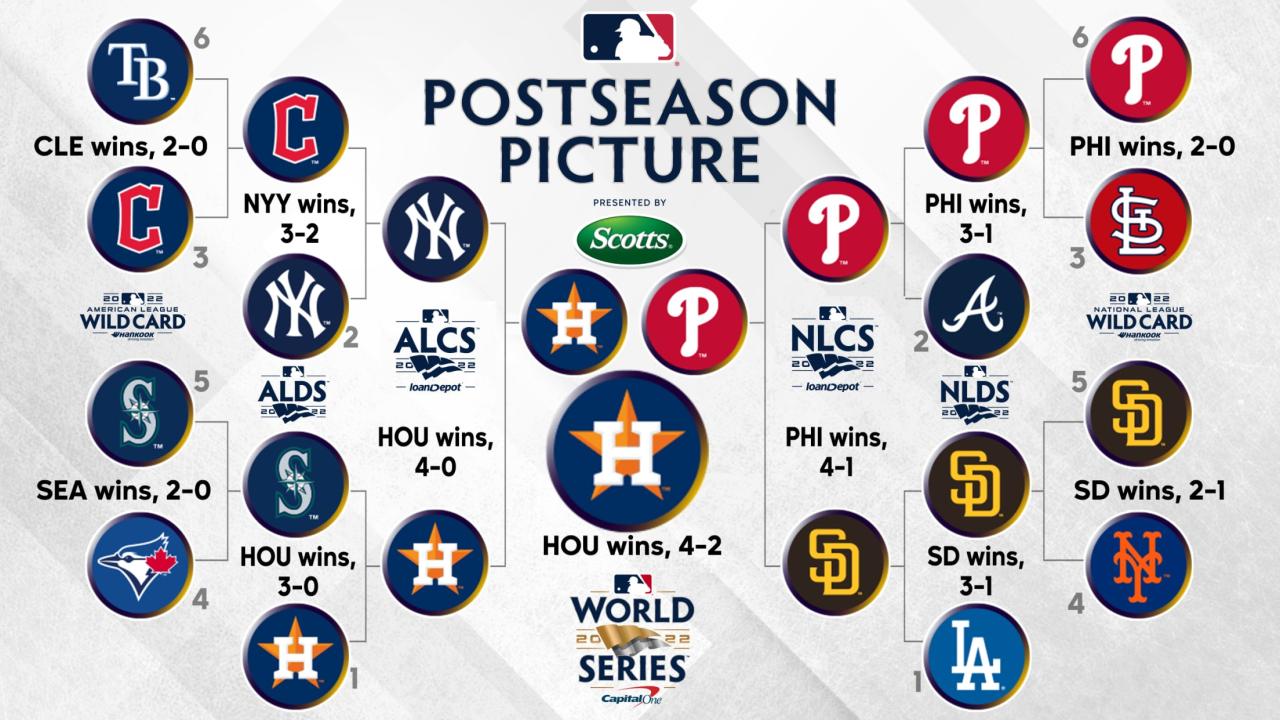
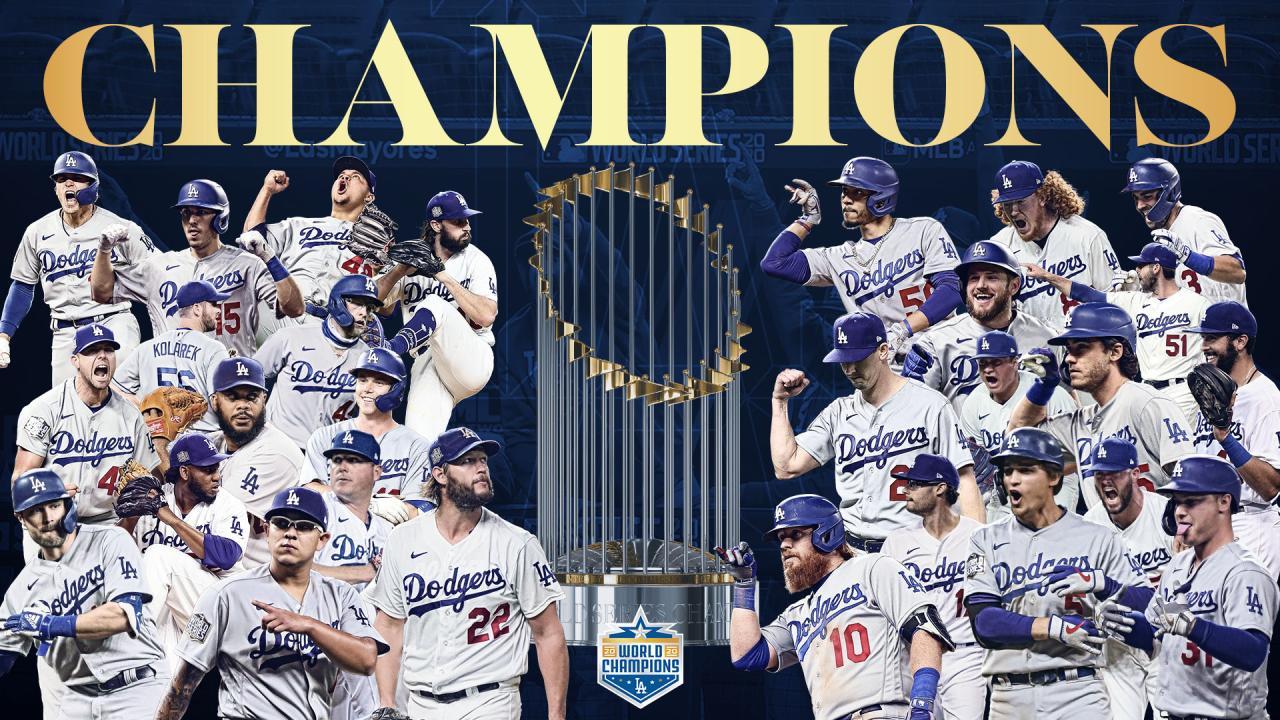
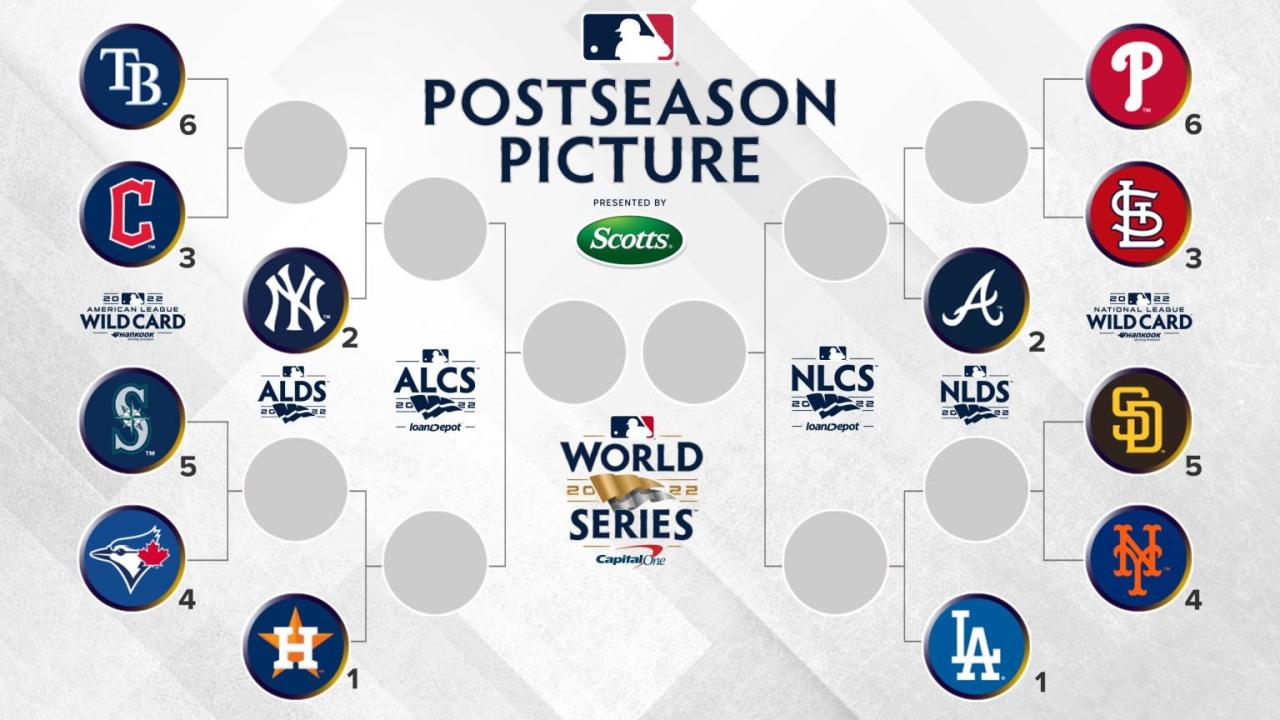
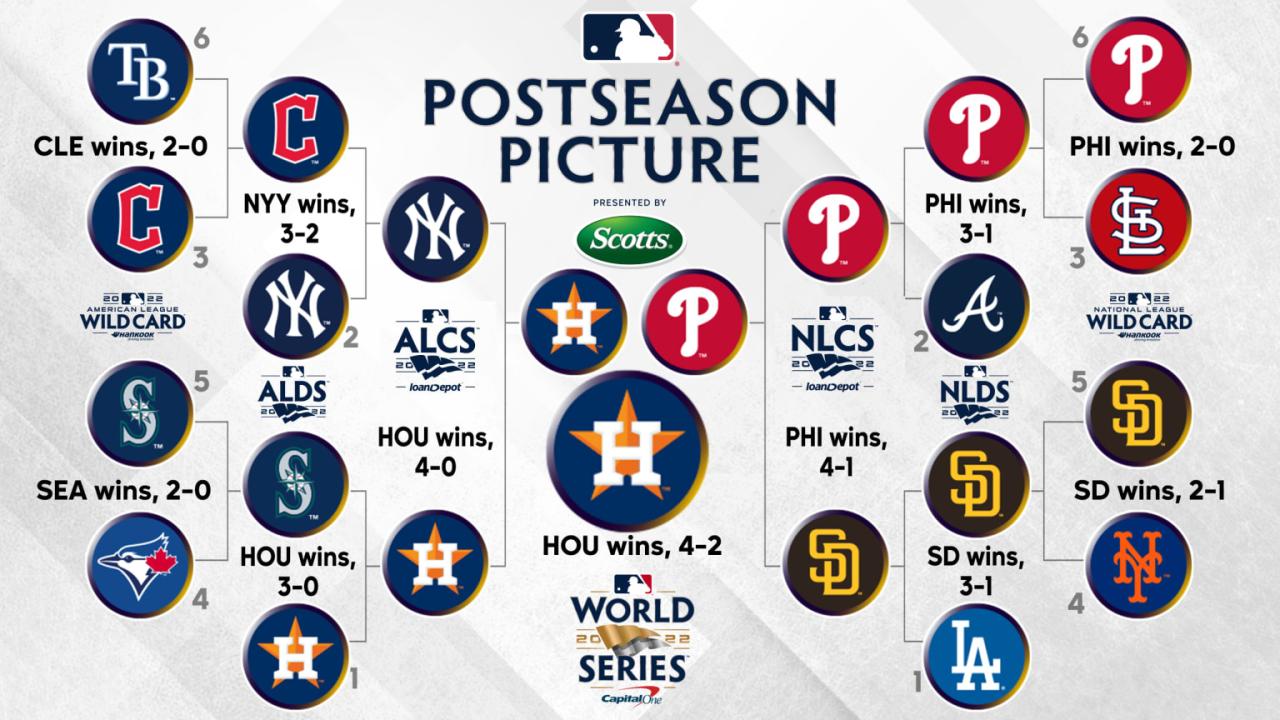
3 thoughts on “MLB World Series: A History and Legacy”